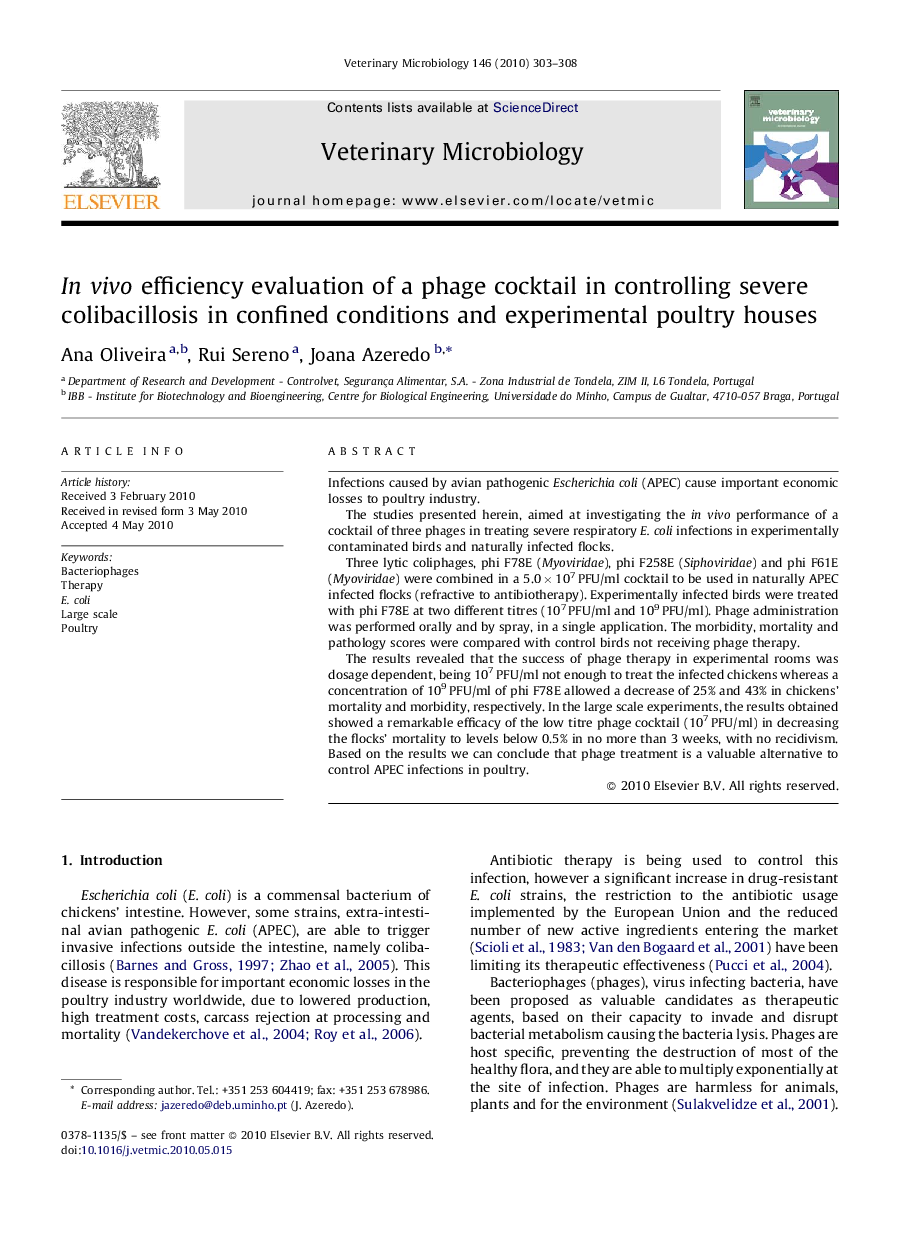| Article ID | Journal | Published Year | Pages | File Type |
|---|---|---|---|---|
| 2467957 | Veterinary Microbiology | 2010 | 6 Pages |
Infections caused by avian pathogenic Escherichia coli (APEC) cause important economic losses to poultry industry.The studies presented herein, aimed at investigating the in vivo performance of a cocktail of three phages in treating severe respiratory E. coli infections in experimentally contaminated birds and naturally infected flocks.Three lytic coliphages, phi F78E (Myoviridae), phi F258E (Siphoviridae) and phi F61E (Myoviridae) were combined in a 5.0 × 107 PFU/ml cocktail to be used in naturally APEC infected flocks (refractive to antibiotherapy). Experimentally infected birds were treated with phi F78E at two different titres (107 PFU/ml and 109 PFU/ml). Phage administration was performed orally and by spray, in a single application. The morbidity, mortality and pathology scores were compared with control birds not receiving phage therapy.The results revealed that the success of phage therapy in experimental rooms was dosage dependent, being 107 PFU/ml not enough to treat the infected chickens whereas a concentration of 109 PFU/ml of phi F78E allowed a decrease of 25% and 43% in chickens’ mortality and morbidity, respectively. In the large scale experiments, the results obtained showed a remarkable efficacy of the low titre phage cocktail (107 PFU/ml) in decreasing the flocks’ mortality to levels below 0.5% in no more than 3 weeks, with no recidivism. Based on the results we can conclude that phage treatment is a valuable alternative to control APEC infections in poultry.
